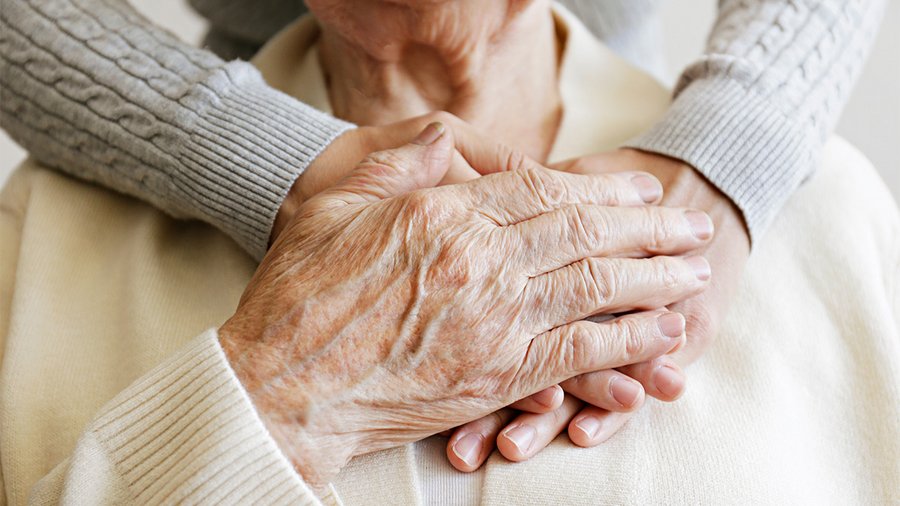Representatives from global organizations agree that care and caregiving requires universal commitment reflected in public policies
In July 2023, the United Nations General Assembly designated October 29 as the International Day of Care and Support. To celebrate this milestone Salzburg Global Seminar has joined the World Health Organization (WHO) Europe in a much-anticipated discussion on recognizing the invisible value and contribution of unpaid care worldwide. The message from a panel of leaders in the field was clear that addressing and overcoming gender inequality and measuring the data gap of unpaid care is fundamental to building resilient and sustainable care systems that ultimately contribute to thriving and inclusive societies.
The online discussion took place last October and included representatives from international organizations, such as the United Nations Partnership for the Rights of People with Disabilities (UNPRPD), American University in Cairo, the European Institute for Gender Equality (EIGE), Eurocarers, the London School of Economics (LSE) and the International Labour Organization (ILO) Europe Office.
Stefania Ilinca, Technical Advisor for Long-Term Care at WHO Europe moderated the discussion. Stefania is one of the leaders behind the development in October 2022 of the “Salzburg Statement on the Value of Care and Caregiving”, a call to action ignited by the Salzburg Global Fellows, who identified priorities and specific recommendations for policy changes and actions needed to ensure fairness, inclusion, and equity in care systems. This statement was a result of a program led by Salzburg Global Seminar and supported by the Robert Wood Johnson Foundation on the topic of Health and Economic Well-being: Gender Equity in Post-Pandemic Rebuilding. Following endorsements by representatives from key international organizations, research institutions and public health associations, the Statement currently serves as a roadmap for global movement towards recognition of unpaid caregivers.
Mary Helen Pombo, Program Director for Health at Salzburg Global Seminar, echoing the Statement went on to stress that the COVID-19 pandemic particularly reflected inequality in caregiving as responsibilities of unpaid care for sick family members or staying at home with children primarily fell to women. Pombo emphasized that the Salzburg Statement and the UN’s recognition of care and caregivers is an opportunity to unite, accelerate, and expand cross-system collaborations that place gender equity at the center.
Dr. Hania Sholkamy, Co-chair of the Care Work Taskforce of the National Council for Women of Egypt, Associate Professor at The American University in Cairo, and a co-leader of the Salzburg Statement emphasized the importance of recognizing care and caregiving as a moral and intellectual responsibility. She pointed out that care is difficult to define and since it is an act of selflessness, it is affected by the lack of dignity, social welfare, and protection.
According to data published by the International Labour Organization, women around the world perform three-quarters of unpaid care work. Jolanta Reingarde from the European Institute for Gender Equality pointed out that closing the gap in statistical data of unpaid care is fundamental to recognition of gender disparity in care and addressing the social and economic benefits of care. Reingarde continued that women bear the economic price since they dominate the care workforce and informal care.
The need for using scientific data in enhancing quality and recognition of care was also emphasized by Adelina Comas-Herrera, Director at Global Observatory of Long-term Care (GoLTC) at the Care Policy and Evaluation Centre at London School of Economics and Political Science. Adelina stressed that, in the context of the current global landscape of rapid demographic change and challenging events linked to pandemics, conflicts and climate change, it is particularly important to have resilient long-term care systems. She went to emphasize that supporting cross-national learning and sharing experiences is key to strengthening care systems. “The COVID-19 pandemic showed that few countries have resilient Long-Term Care systems able to respond to emergencies, and that in most cases what went wrong was linked to structural problems in governance, financing and workforce capacity. It is urgent that countries ensure that they have Long-Term Care systems able to respond not just to unexpected events, but also to the well-known reality that more people are living longer with needs for care and support. International collaboration is vital to support countries in this process,” said Adelina.
As over 70 participants shared information about initiatives and efforts in driving the agenda for the recognition of unpaid care forward, it was clear that the International Day of Care and Support is a milestone step and it will require continued attention, investment, and collaborative effort.


